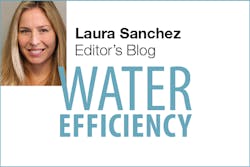How Will Trump’s Proposed Budget Influence the Water Industry?
The Trump administration released a budget proposal recently that EPA Administrator Scott Pruitt explains “respects the American taxpayer.” The plan sets an intention to balance spending in the coming years and invest in infrastructure, but it also suggests significant cuts to most nondefense government agencies. If approved, we wonder what effect this plan would this have on the water industry?
According to ABC News, it would slash funding for the Environmental Protection Agency by nearly one-third, eliminate more than 3,800 jobs, and impose dramatic cuts to clean air and water programs. Specifically, the spending plan outlined for the EPA amounts to $5.7 billion, a 31 percent cut from the current budget year. The Associated Press reports that the agency’s workforce would drop from 15,416 full-time employees to 11,611.
Furthermore, the $1 trillion infrastructure program—now called a private-public infrastructure investment—allocates $200 billion for renewal over 10 years. Members of the American Society of Civil Engineers have recoiled at the proposed amount, in comparison to the $1 trillion plan Trump previously pledged. With regard to the dire need for infrastructure investment, lobbyist Brian Pallasch told The Atlantic, “We’re trying to figure out how that $200 billion is going to become $1 trillion.”
The Trump administration claims that incentivizing development rather than paying for it directly is a smarter, market-oriented approach to modernizing waterways, roads, and energy networks. President Trump will lay out a plan in the coming weeks that will limit the federal government’s funding of the nation’s infrastructure and call upon states, cities, and corporations to finance infrastructure renewal.
“We like the template of not using taxpayer dollars to give taxpayers wins,” Gary Cohn, director of the National Economic Council and an architect of the infrastructure plan, told the New York Times.
“The president’s budget respects the American taxpayer,” said EPA Administrator Scott Pruitt. “This budget supports EPA’s highest priorities with federal funding for priority work in infrastructure, air and water quality, and ensuring the safety of chemicals in the marketplace.”
However, many programs will likely be eliminated due to EPA budget cuts, including $427 million in regional programs that work to decrease pollution in the Great Lakes, Chesapeake Bay, and Puget Sound. These cuts are sure to directly impact the water industry in a variety of ways—from job elimination to regulation and project financing. Furthermore, scientists and environmental engineers have expressed concern that the administration’s spending plan, if adopted by Congress, may lead to more pollution-related illnesses and have environmental consequences.
What are your thoughts? How do you think the proposed budget will affect the water industry?
